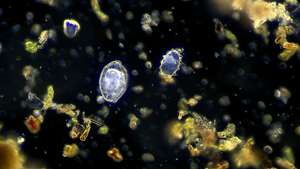
The Biology of Aging and Longevity
As we journey through life, the inevitability of aging is a shared experience. Yet, the mechanisms governing the process of aging are complex and multifaceted. In recent years, scientific research has made significant strides in understanding the biology of aging and the factors that contribute to longevity. In this article, we embark on a fascinating exploration of the biological intricacies behind aging and the science that seeks to unravel the secrets of longevity.

The Basics of Aging
1. Cellular Senescence:
At the core of aging lies cellular senescence, a state in which cells lose their ability to divide and function properly. This process is influenced by various factors, including DNA damage, telomere shortening (the protective caps at the end of chromosomes), and environmental stressors.
2. Genetic Factors:
Our genes play a crucial role in determining how we age. The interplay of genetic factors contributes to the variation in lifespan observed across individuals and populations. Researchers have identified specific genes associated with longevity and are delving into the mechanisms by which these genes influence the aging process.
3. Mitochondrial Dysfunction:
Mitochondria, the energy-producing powerhouses within cells, play a pivotal role in aging. Over time, these organelles can experience damage and dysfunction, leading to a decline in cellular energy production and contributing to the aging process.

The Role of Telomeres
1. Telomeres and Cellular Division:
Telomeres, the protective caps at the ends of chromosomes, act like the aglets on shoelaces, preventing the genetic material from fraying. With each cell division, telomeres naturally shorten. When they reach a critical length, cells enter a state of senescence or undergo programmed cell death (apoptosis).
2. Telomerase and Cellular Immortality:
Telomerase is an enzyme that can counteract telomere shortening by adding DNA to the ends of chromosomes. Some cells, particularly stem cells and certain immune cells, maintain telomerase activity, allowing for continued division and rejuvenation.

The Impact of Oxidative Stress
1. Free Radicals and Aging:
Free radicals, unstable molecules produced during cellular processes, can cause damage to cellular structures, including DNA and proteins. This oxidative stress is implicated in aging and age-related diseases. Antioxidants, molecules that neutralize free radicals, play a protective role in mitigating this damage.
2. Inflammation and Aging:
Chronic inflammation, a persistent and low-grade immune response, is a hallmark of aging. Inflammatory processes contribute to tissue damage and are associated with various age-related conditions, from cardiovascular diseases to neurodegenerative disorders.
Longevity Factors and Lifestyle
1. Diet and Nutrition:
Caloric restriction, without malnutrition, has been shown to extend lifespan in various organisms. Nutrient-rich diets, including antioxidants and anti-inflammatory foods, may also positively influence aging.
2. Exercise and Longevity:
Regular physical activity is linked to longevity and can positively impact various aspects of health, including cardiovascular function, bone density, and cognitive performance.
3. Social and Emotional Well-being:
Social connections and emotional well-being are significant contributors to a longer, healthier life. Strong social ties are associated with a reduced risk of chronic diseases and mortality.

The Science of Aging and Potential Interventions
1. Senolytics:
Senolytics are compounds that target and eliminate senescent cells. By clearing these aged cells from tissues, senolytics show promise in alleviating age-related conditions and extending healthspan.
2. Telomere Therapy:
Researchers are exploring telomere extension strategies, including the activation of telomerase, as a potential means of reversing cellular aging and promoting longevity.
3. Anti-Aging Drugs:
Various drugs, such as rapamycin and metformin, have shown potential in extending lifespan and improving health in experimental models. Clinical trials are underway to explore their efficacy and safety in humans.
Unlocking the Secrets of Longevity
While aging remains an inevitable aspect of the human experience, the evolving field of aging biology offers hope for interventions that could slow the process and enhance the quality of life in later years. The intricate dance of genes, cellular processes, and environmental influences shapes the trajectory of aging, and ongoing research continues to unveil the mysteries of longevity. As scientists delve deeper into the biology of aging, the prospects for extending a healthy and vibrant life are becoming increasingly tangible, ushering in an era where the golden years may indeed be golden.




